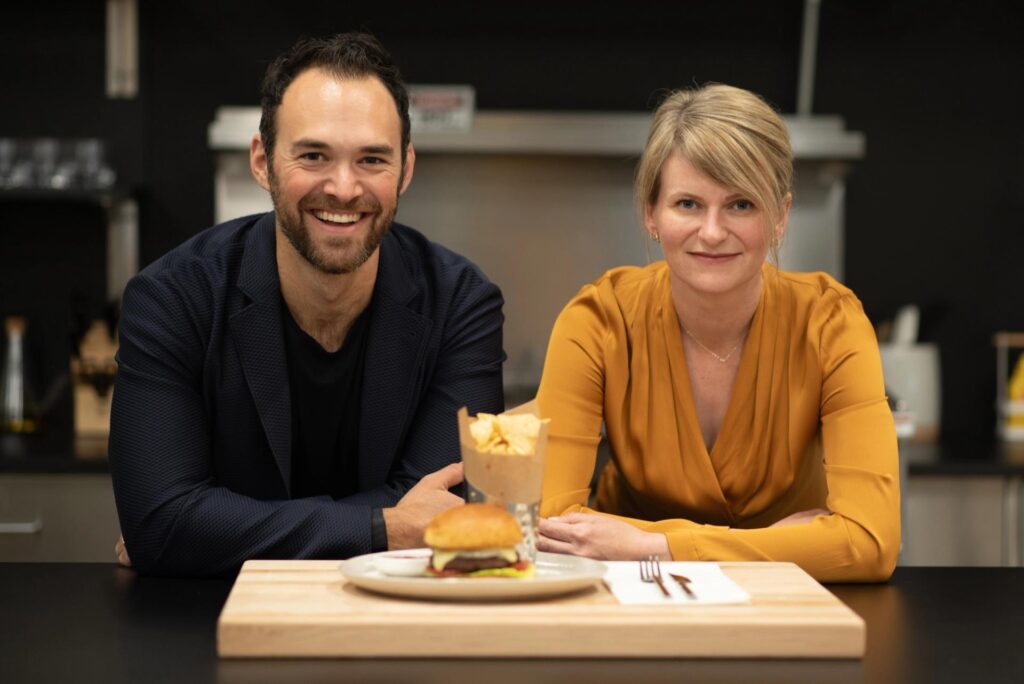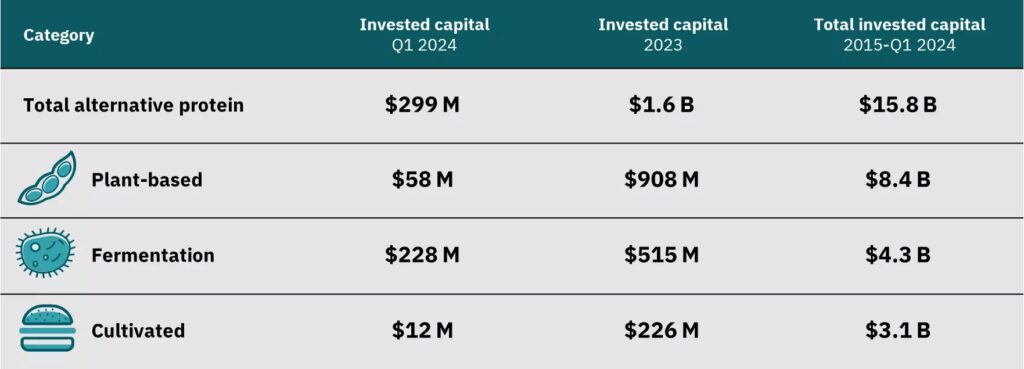
US hybrid meat startup SciFi Foods has appointed an advisory firm to sell its assets as cultivated meat continues to face a bleak investment landscape.
San Francisco-based startup SciFi Foods, the maker of hybrid meat from cultivated beef cells and plant-based ingredients, is shutting down its operations.
The news comes months after the company successfully completed its first commercial-scale production run in a 500-litre bioreactor. It had also been in consultation with the FDA over its regulatory approval path in the US.
“Given challenges in the fundraising market, we’ve appointed an advisory firm to run a sale process,” co-founder and CEO Joshua March told AgFunderNews.
“Given the nature of the process, I can’t really say much more beyond this,” he added.
SciFi Foods had achieved price parity with conventional beef

Founded in 2019 as Artemys Foods, the startup rebranded in 2022 with a cultivated beef product to be used in hybrid meat formulations. Backed by Silicon Valley VC Andreessen Horowitz (a16z) and other investors like Coldplay, SciFi Foods has brought in over $40M in total financing.
Hybrid meat, which combines cultivated proteins with plant-based ingredients, is aimed at enabling scalability and driving down the high costs of cultivated meat. Investors say this is the only way it is currently commercially viable – Eat Just, the first company to ever sell cultivated meat, has previously rolled out versions with about 60-70% of cultivated cells, and its latest innovation is a retail offering with 3% of chicken cells.
Startups like Aleph Farms, Meatable and Vital Meat – which are all expecting regulatory approval in various markets over the next few months – are also using the hybrid approach for their products. Aleph Farms, which received the go-ahead from the health ministry in Israel in January, will soon roll out its hybrid beef at restaurants in the country.
Late last year, SciFi Foods opened a 16,000 sq ft pilot facility in San Leandro, California, where it began growing beef cell lines in single-cell suspension, in a 100% serum-free process. This is where it had finished its first run in the 500-litre bioreactor.
Single-cell suspension allows cells to be grown in any standard, stirred-tank bioreactor, without the need to try and scale up novel hardware. It also does away with the need for expensive substrates like microcarriers or scaffolding, which is crucial for cost control.
SciFi Foods, whose hybrid burger was a 90/10 mix of a soy protein base and cultivated beef, announced that it had achieved price parity with conventional beef using a combination of its proprietary high-throughput cell line engineering and CRISPR technology in 2022.
Cultivated meat feels the heat

The development comes amid what has been a highly turbulent time for the cultivated meat industry. As March alluded to, fundraising has been a mountain to climb – according to the Good Food Institute (GFI), investment in cultivated meat companies nosedived by 75% from 2022 to 2023. This came amid a wider decline in food tech funding (-61%), with alternative protein financing dropping by 44% to $1.6B.
The loss of faith among VCs has continued for cultivated meat startups this year, with Q1 witnessing merely 5% of the $226M invested in the sector in all of 2023. It’s why AgFunder has earmarked cultivated meat as a “category to watch” this year.
It has become a major headache for companies in this sector. Just last week, Aleph Farms confirmed it had laid off 30% of its local staff in Israel due to difficulties in securing capital amid its scale-up process, and as part of its asset-light growth strategy. Californian cultivated seafood producer Finless Foods had similarly carried out two rounds of layoffs in less than 12 months.
Also in California, cultivated pork startup New Age Eats ceased operations in March 2023. Eat Just, based in San Francisco, has been caught up in a lawsuit against its former contract manufacturer ABEC, which has claimed over $100M in payments for changes to the scope of the work and unpaid bills in relation to its cultivated chicken arm Good Meat. A judge has sided with both entities in several matters, and the case will now proceed to trial.

Another Californian startup, Los Angeles-based Omeat, has had its workforce cut by 80%, with its founder stepping down as CEO amid allegations of creating a hostile work culture.
Apart from the financial headwinds, the industry has also been met with legislative challenges. Italy became the first country to ban the production and sale of cultivated meat last year, with France and Romania contemplating the same. And last month, the US states of Florida and Alabama both passed similar bills, which were heavily criticised even by the meat industry.
Company closures were predicted to continue this year by alternative protein experts, and SciFi Foods has become the latest on that list. “We are in a phase of consolidation and correction that isn’t over yet. Given that venture capital is so scarce, fundraising and due diligence processes are taking extremely long, and especially lead investors are so hard to find, we expect to see more businesses going down,” Albrecht Wolfmeyer, director of ProVeg Incubator, told Green Queen in April.
He added: “At the same time, we are seeing a lot of exciting innovation in the ecosystem and also growing consumer and corporate interest in markets like Germany. This and parts of next year will be tough, then we’ll see more light at the end of the tunnel.”
The post Hybrid Meat Startup SciFi Foods Shuts Down Amid Fundraising Challenges appeared first on Green Queen.
This post was originally published on Green Queen.